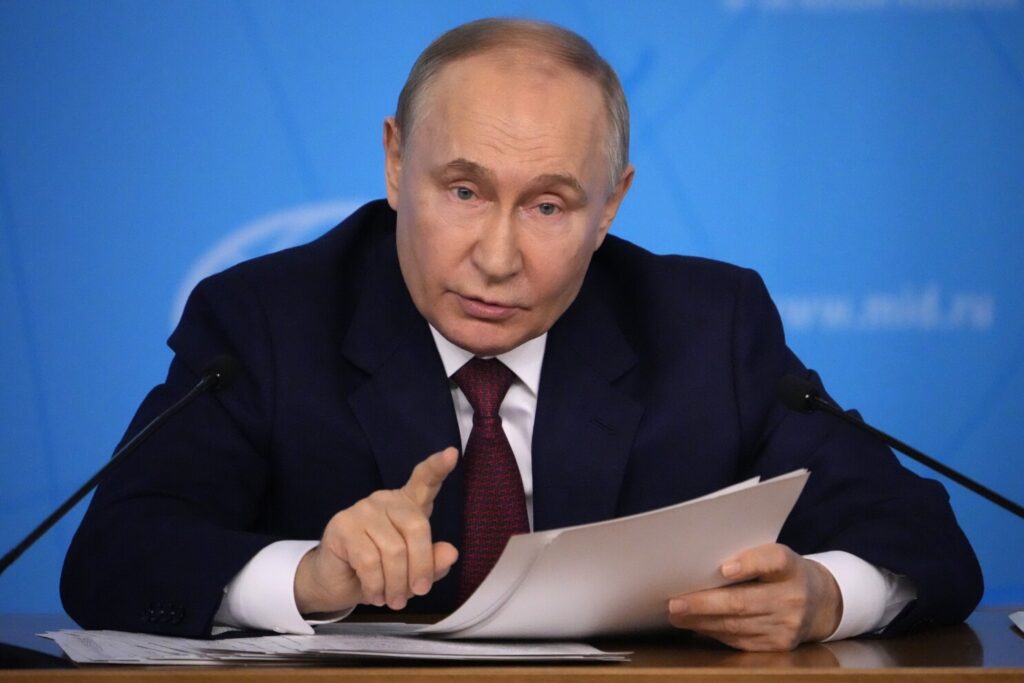MURMANSK, RUSSIA – Russian President Vladimir Putin has proposed establishing a temporary administration in Ukraine under the auspices of the United Nations, the United States, European countries, and other partners. This arrangement, he stated, would facilitate new elections and the signing of key agreements to resolve the ongoing conflict.

Speaking in Murmansk, Putin remarked that Russia was steadily progressing toward its objectives in the conflict, emphasizing his belief that newly elected U.S. President Donald Trump genuinely seeks to end the war. He contrasted Trump’s willingness for direct talks with Russia to the stance of former President Joe Biden, who he claimed avoided such contacts.
Putin’s comments reflect a long-standing grievance over the legitimacy of Ukrainian authorities, particularly President Volodymyr Zelensky, who remains in office despite his mandate expiring in May 2024.
“In principle, of course, a temporary administration could be introduced in Ukraine under the auspices of the U.N., the United States, European countries, and our partners,” Putin was quoted as saying. “This would enable democratic elections, empower a capable government trusted by the people, and initiate peace talks.”
Putin underscored Russia’s commitment to “peaceful solutions to any conflict, including this one, through peaceful means, but not at our expense.” He asserted that Russian forces maintain strategic initiative along the entire military contact line.
Putin also expressed Russia’s readiness to cooperate with multiple nations, including North Korea, in efforts to resolve the conflict. Western and Ukrainian sources allege that over 11,000 North Korean troops have been deployed to support Russian forces in Moscow’s western Kursk region, although Moscow has not confirmed this claim.
Putin stated, “The newly elected president of the United States sincerely wants an end to the conflict for a number of reasons.”
As the situation remains tense, the proposed plan would aim to establish a legitimate Ukrainian government and pursue a peace treaty. However, questions persist about the feasibility and acceptance of such an arrangement.



